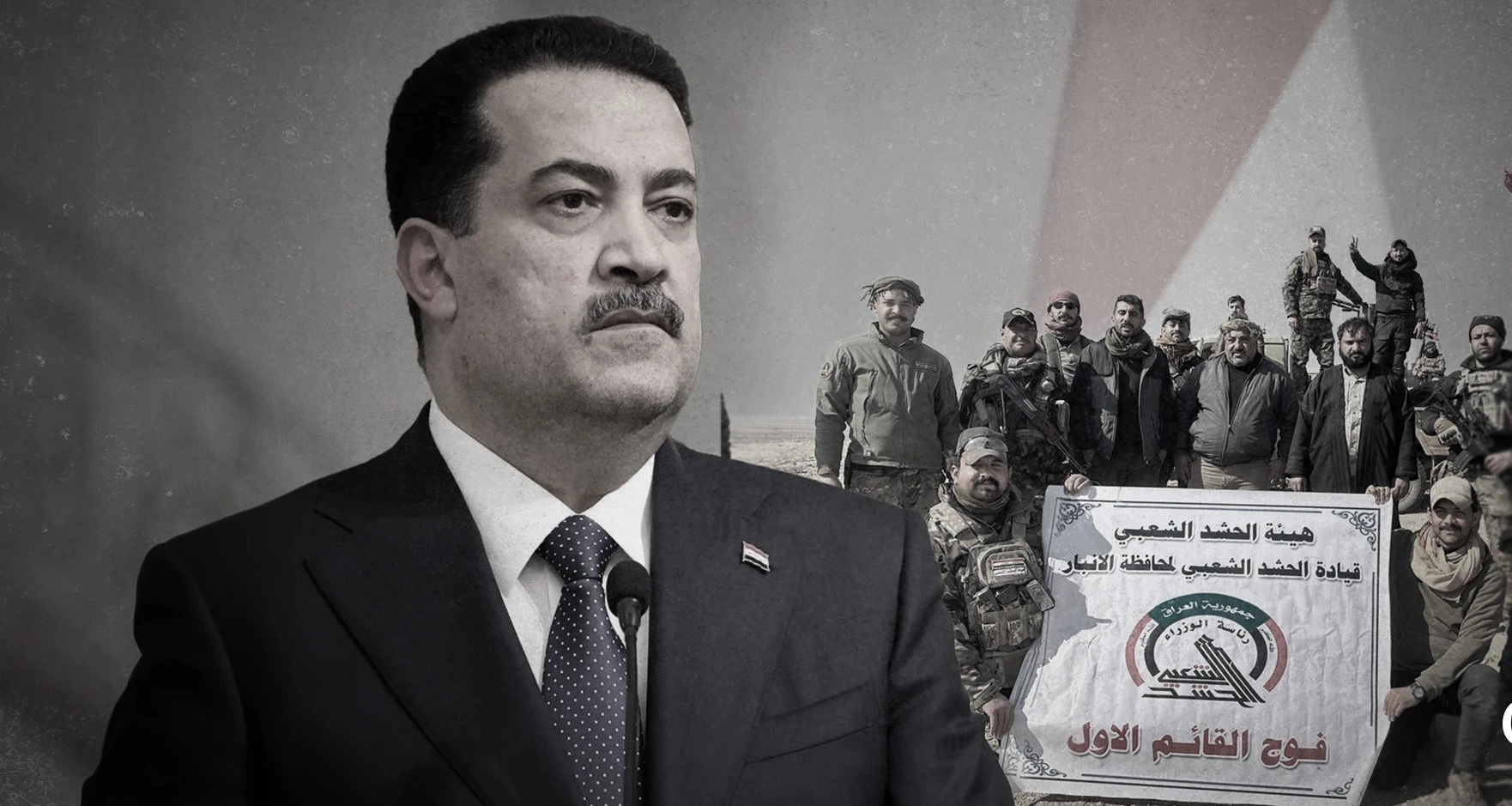Alwaght- An armed group that came to birth from a religious call, or fatwa, to fight ISIS organization has today grown up to become a fully-fledged military force, and it seems that it is now a pillar of national power and a strong actor in the country, a group whose name symbolizes resistance against the pro-Western, US-aligned Front: Popular Mobilization Forces (PMF).
The short history of rise of the PMF should be probed in June 2014, the time the Iraqi army collapsed under the lightening attacks of the ISIS in Mosul and then the self-proclaimed ISIS caliphate led by Abu Bakr al-Baghdadi, advancing to the capital Baghdad, risked seizing the capital city and desecrating the religious cities of Najaf and Karbala.
In the vacuum caused by the collapse of the army, not the Western powers but an army of voluntary forces deeply believing in resistance and committed to the national honor and sovereignty moved to defend the country. This forces, called Hashd al-Shaabi in Arabic, rushed to defend the country against foreign-backed terrorists following a fatwa by the grand Shiite cleric Sayyed Ali al-Sistani. An organization that was created in Iraq more than 10 years ago as an emergency response to the terrorist threat has today become a big and efficient security apparatus against terrorists.
From voluntary resistance to legal cover
The official beginning of the PMF followed the official recall for public mobilization by Ayatollah al-Sistani. During the ISIS attack on Mosul, Anbar, and Salahuddin, the Iraqi army totally collapsed on the fronts and this nascent force rose to existence as the last defense line of Iraq.
The PMF today consists of long-standing groups such as the Badr Organization, Kata’ib Hezbollah (KH), Asa’ib Ahl al-Haqq, and newer resistance groups such as the Abbas Brigade (affiliated with the Holy Shrine of Imam Abbas) which were born on the frontlines of the against terrorism. Not only Shiite mobilization units, but also Sunni, Yazidi, and Christian units are part of the PMF, each playing a role in Iraq’s defense network in different regions of the country.
Today, the PMF has transformed from a popular mobilization force into an official organization. In 2016, the Iraqi parliament passed a law integrating the PMF into the official armed forces and placed it under the command of the prime minister as the commander-in-chief.
The PMF’s numbers have doubled since its formation during the war against ISIS in 2014, when it was 100,000 strong, to more than 230,000. The Iraqi government has also allocated about $2.6 billion to the PMF in the 2024 budget. This figure has been confirmed by the analytical website the Cradle, which monitors developments in the region.
PMF’s regional role
Before 2016, Washington called on Baghdad not to approve any law recognizing the PMF as an official military force. But the Iraqi armed forces, disregarding the American requests, transformed the voluntary force into an official security force.
On the other hand, the type of the regional countries’ dealing with the PMF is various. Iran has close ties to the force, but Saudi Arabia finds it a geopolitical obstacle to its agenda in Iraq. The UAE and Qatar interact with some moderate factions of the PMF and Turkey holds contacts with Sunni factions of the PMF as it operates in northern Iraq.
Stabilizing role
The PMF are, indeed, also facing opposition from some internal groups close to the West, and some groups aligned with the US have called for the dissolution of this force. However, the dissolution of the PMF faces a serious obstacle, namely the PMF cannot be easily dissolved, because it is a stabilizing structure within Iraq, and its dissolution would mean further insecurity in the country. In fact, the dissolution of the PMF will fuel insecurity in Iraq and allow increase of the activity of terrorist groups. What is clear is that one cannot demand the dissolution of the PMF and at the same time seek to ensure security in Iraq.
One of the most important religious events in Iraq, for which the PMF forces are responsible for ensuring security every year, is the Arbaeen congregation. According to reports, this year, extensive security operations by the army and the PMF have begun to secure the desert of Karbala, on the eve of the Arbaeen, the fortieth of martyrdom of Imam Hussein, the grandson of prophet Muhammad who was martyred rising against oppression in 680 AD.
This is while every year, takfiri terrorist elements, under the direct guidance of the Israeli regime, become more active in attacking the huge ceremony, but the high vigilance and readiness of the PMF, along with the Iraqi army, have thwarted these plots, and the PMF, as the largest official popular force in Iraq, along with other security forces, assume the responsibility of maintaining the security of the Arbaeen pilgrims.
PMF’s security mechanism during Arbaeen
According to the PMF officials, securing the Arbaeen by this force has a special mechanism. Abu Thaer al-Bashiri, the deputy commander of Kirkuk Operations, last year outlined to the Iraqi news agency the PMF’s security plan for the Arbaeen:
- Deployment of four brigades of the PMF in the areas of Altun Kobri to Daquq and control of Jeman to Daquq and then towards Tuz Khurma and Amerli and then to Diyala Operations Command.
- Deployment of four more brigades to command the operations north and east of the Tigris
- Use of cameras, drones and other modern equipment
- Activation of the PMF intelligence groups at the entrances to Kirkuk province
- Deployment of PMF convoys on the roads along with the police and army to provide road security
Extensively using this mechanism by the PMF to provide security for the Arbaeen ceremony demonstrates that this force is an efficient security institution in Iraq today and that it cannot be easily ignored or eliminated from the social and political body of the country.



























